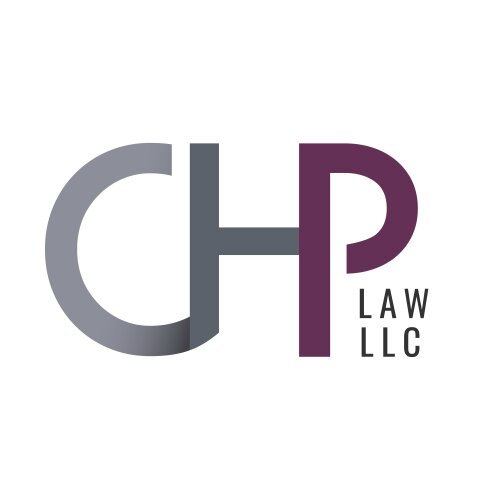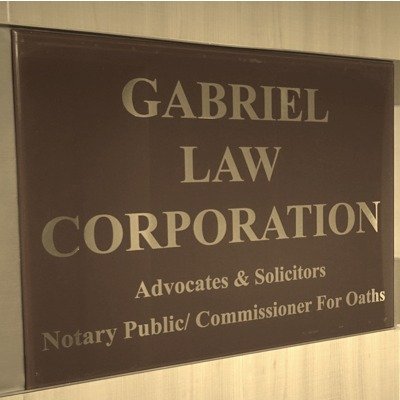Best Antitrust Litigation Lawyers in Raffles Place
Share your needs with us, get contacted by law firms.
Free. Takes 2 min.
List of the best lawyers in Raffles Place, Singapore
About Antitrust Litigation Law in Raffles Place, Singapore
Raffles Place is the heart of Singapore’s financial and business district, hosting numerous multinational corporations, banks, and professional services firms. Antitrust litigation in this area pertains to legal actions arising from competition-related issues, such as price fixing, abuse of market dominance, bid rigging, and anti-competitive agreements. Governed primarily by Singapore’s Competition Act, antitrust law ensures fair trading practices and maintains a level playing field for businesses of all sizes. Engaging in or being accused of anti-competitive conduct can result in significant legal and financial consequences for companies operating in or around Raffles Place.
Why You May Need a Lawyer
Legal assistance is crucial in antitrust matters due to their complexity and the high stakes involved. You may require a lawyer if you or your business face accusations of breaching competition laws, receive a notice from the Competition and Consumer Commission of Singapore (CCCS), or wish to challenge a competitor’s conduct in court. A lawyer’s expertise is vital when navigating investigations, managing compliance audits, responding to government inquiries, or defending against penalties. Additionally, legal counsel is important if you intend to file a complaint about anti-competitive behaviors that affect your business, such as exclusive dealing or unfair pricing strategies by competitors.
Local Laws Overview
Antitrust litigation in Raffles Place revolves mainly around the Competition Act of Singapore. The Act prohibits agreements which prevent, restrict, or distort competition within Singapore, including cartels and collusive behaviors. It also forbids abuse of a dominant position, such as predatory pricing or exclusive supply agreements that harm market competition. The CCCS is the regulatory body empowered to investigate suspected infringements and enforce penalties. The Act provides avenues for affected parties to seek legal redress, including private actions in the Singapore courts to claim damages resulting from anti-competitive conduct. Engaging in practices contrary to these laws can result in hefty financial penalties, prohibition orders, and in some cases, damages to affected parties.
Frequently Asked Questions
What is antitrust litigation?
Antitrust litigation refers to legal proceedings related to violations of competition or antitrust laws, including actions against companies for anti-competitive agreements, abuse of market dominance, or other conduct that restricts fair market competition.
Who enforces antitrust laws in Singapore?
The Competition and Consumer Commission of Singapore (CCCS) is the primary regulator responsible for enforcing competition laws and investigating suspected antitrust violations in Singapore.
What kinds of behaviors are considered anti-competitive?
Anti-competitive behaviors include price fixing, bid rigging, market sharing, restricting supply or output, abusing a dominant market position, and entering into exclusive arrangements that harm competition.
Can businesses in Raffles Place file lawsuits for antitrust violations?
Yes, businesses can commence private actions in court for damages or other remedies if they have suffered losses due to another party’s breach of competition law.
What penalties can be imposed for antitrust violations?
Penalties can include substantial financial fines, cease and desist orders, contracts being declared void, and claims for damages by affected businesses. The CCCS may also require remedial actions.
Are mergers and acquisitions subject to antitrust review?
While there is no mandatory merger notification regime in Singapore, the CCCS can review and take action against mergers that may significantly reduce competition in a market.
How long do antitrust investigations usually take?
The duration varies depending on the complexity of the case and the availability of evidence. Investigations can last from several months to over a year.
Do I need a lawyer if I receive a notice from the CCCS?
It is highly advisable to consult a lawyer if you receive any notice or communication from the CCCS, as the implications could be serious and require expert legal advice to respond appropriately.
Can individuals be held liable for antitrust violations?
In general, the sanctions and penalties target businesses, but individuals may also face consequences if they are found personally involved in anti-competitive agreements or activities.
How can I ensure my business complies with local antitrust laws?
Regularly consulting with an antitrust lawyer, conducting internal compliance audits, and providing staff training are effective steps to ensure adherence to antitrust and competition regulations.
Additional Resources
For further assistance and information regarding antitrust litigation in Raffles Place, consider these resources and organizations:
- Competition and Consumer Commission of Singapore (CCCS) - The national authority for competition policy and enforcement
- Singapore Academy of Law - Source of legal publications and practitioners
- Law Society of Singapore - Directory of qualified lawyers and law firms
- International Competition Network - Guidance on global competition standards and regulation
- CCCS Guidelines - Detailed explanations of competition law and enforcement practices
Next Steps
If you suspect that you or your business may be involved in an antitrust issue or require legal assistance in this field, take the following steps:
- Gather all relevant documentation, such as contracts, correspondence, and notices from regulators
- Avoid making public statements or contacting other parties involved before consulting a lawyer
- Contact an experienced antitrust or competition law lawyer who practices in Singapore, preferably with experience in commercial litigation in the Raffles Place area
- Schedule a consultation to discuss your case, evaluate your risks, and develop a legal strategy
- Follow your lawyer’s guidance regarding communication with authorities and any ongoing investigations
Lawzana helps you find the best lawyers and law firms in Raffles Place through a curated and pre-screened list of qualified legal professionals. Our platform offers rankings and detailed profiles of attorneys and law firms, allowing you to compare based on practice areas, including Antitrust Litigation, experience, and client feedback.
Each profile includes a description of the firm's areas of practice, client reviews, team members and partners, year of establishment, spoken languages, office locations, contact information, social media presence, and any published articles or resources. Most firms on our platform speak English and are experienced in both local and international legal matters.
Get a quote from top-rated law firms in Raffles Place, Singapore — quickly, securely, and without unnecessary hassle.
Disclaimer:
The information provided on this page is for general informational purposes only and does not constitute legal advice. While we strive to ensure the accuracy and relevance of the content, legal information may change over time, and interpretations of the law can vary. You should always consult with a qualified legal professional for advice specific to your situation.
We disclaim all liability for actions taken or not taken based on the content of this page. If you believe any information is incorrect or outdated, please contact us, and we will review and update it where appropriate.











